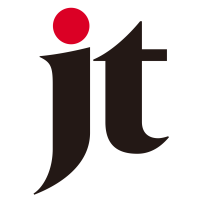About 613,000 people aged 40 to 64 are believed to fall into the category of recluses, who hide themselves away in their homes without working, the government’s first survey on the age group showed Friday.
The estimated number of recluses, known as hikikomori, in that age group is higher than those age 15 to 39. There are an estimated 541,000 recluses that fall into the younger age bracket, a Cabinet Office survey in 2015 showed.
The total number of social recluses in Japan is thought to be over 1 million, an official said.
“Adult hikikomori is a new social issue,” said welfare minister Takumi Nemoto. “It should be addressed appropriately by conducting studies and analyses.”
The Health, Labor and Welfare Ministry defines hikikomori as people who have remained isolated at home for at least six consecutive months, not going to school or work and not interacting with people outside their family.
Of those surveyed, 76.6 percent of recluses were men. Most, both men and women, began withdrawing from society after retirement, according to the survey, which was conducted in December and involved 5,000 households with at least one member in the age group.
The study showed a total of 46.7 percent of recluses have lived that way for at least seven years, highlighting a trend in which older people are shutting themselves in their homes for longer periods. One in three hikikomori was financially dependent on elderly parents.
Of those surveyed, 21.3 percent said they have been disconnected with those around them for three to five years.
The number of surveyed people who cited retirement as a trigger for their withdrawal stood at 36.2 percent, followed by those who pointed to troubles with human relationships or illness, both at 21.3 percent. Those who said they felt like misfits in their workplace accounted for 19.1 percent.
One in three hikikomori aged between 40 and 44 — a generation said to have lived through an “employment ice age” when new graduates found it hard to secure jobs — became socially reclusive between the ages of 20 and 24 years old, suggesting their inability to find work was behind the problem at least to some extent.
Either a hikikomori’s father or mother provided financially for their shut-in child in 34.1 percent of cases, and some families rely solely on a parent’s pension.
A 56-year-old man from Tokyo said that his parents were in their 70s when he started withdrawing from society at the age of 40.
After his father died in 2016 and his mother died in 2017, he was introduced to a person from a support group who looked for a lower-priced place for him to live.
“I was lucky to have found someone who helped me, but once you become a hikikomori, it is difficult to consult others,” he said. “I wish there was a system specially designed to support such people.”


